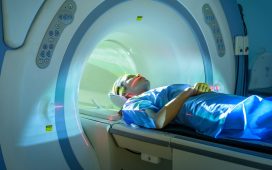The government claims to have exceeded its goal of a daily Covid-19 test capacity of 200,000 by the end of May.
Boris Johnson set a target 200,000 tests a day earlier this month, but aides later said this referred to operational capacity rather than tests performed. On Saturday, 205,634 tests were available, meeting the target a day early, the government said. It did not release figures for the number of tests carried out.
Experts questioned whether the theoretical capacity target was a meaningful way of assessing whether current levels of testing were adequate to support the newly launched track-and-trace programme.
According to Department of Health figures, 127,722 diagnostic tests were performed on Saturday, of 165,634 available. There was further capacity for 40,000 antibody tests available to NHS and social care staff. The government has not released figures for how many antibody tests have been carried out, but NHS pathology labs are understood to have been given targets for performing thousands of tests a day since late last week.
Testing capacity is reported by laboratories based on the their assessments of what they can deliver with the equipment and workforce available.
Prof Devi Sridhar, the chair of global public health at the University of Edinburgh, said: “I think we need to be focused less on targets and more on getting in place the necessary local systems to do testing and tracing and isolating. One number is not sufficient to capture what is needed, which is a comprehensive public health package.”
Contact tracing is one of the most basic planks of public health responses to a pandemic like the coronavirus. It means literally tracking down anyone that somebody with an infection may have had contact with in the days before they became ill. It was – and always will be – central to the fight against Ebola, for instance. In west Africa in 2014-15, there were large teams of people who would trace relatives and knock on the doors of neighbours and friends to find anyone who might have become infected by touching the sick person.
Most people who get Covid-19 will be infected by their friends, neighbours, family or work colleagues, so they will be first on the list. It is not likely anyone will get infected by someone they do not know, passing on the street.
It is still assumed there has to be reasonable exposure – originally experts said people would need to be together for 15 minutes, less than 2 metres apart. So a contact tracer will want to know who the person testing positive met and talked to over the two or three days before they developed symptoms and went into isolation.
South Korea has large teams of contact tracers and notably chased down all the contacts of a religious group, many of whose members fell ill. That outbreak was efficiently stamped out by contact tracing and quarantine.
Singapore and Hong Kong have also espoused testing and contact tracing and so has Germany. All those countries have had relatively low death rates so far. The World Health Organization says it should be the “backbone of the response” in every country.
Sarah Boseley Health editor
The health secretary, Matt Hancock, said: “Reaching our 200,000 capacity target is an important milestone on our journey to control the spread of the virus, save lives and gradually ease lockdown. By rapidly expanding our testing capacity, we have been able to introduce NHS test and trace, and enabling those who have coronavirus symptoms to get a test is an important part of the programme.”
Prof John Newton, the national testing coordinator, said: “The expansion of our testing capacity has allowed us to take important steps to control the virus, including the introduction of a world-class contact tracing service that will help us to safely ease lockdown over time. I am proud to say that anyone in the country who needs a test can get one, regardless of where in the country they are.”
Testing is crucial to the government’s track-and-trace system, which is being relied on to keep infection numbers under control as lockdown restrictions are eased this week.
Hospitals were instructed on Friday to begin mass testing staff and patients for antibodies, and doctors reported a concerted effort over the weekend to test as many as possible. The antibody tests will help to build a picture of how many healthcare workers have been infected with Covid-19 and could be used to get more accurate figures on the proportion who showed symptoms. It is not yet clear, however, that having antibodies guarantees immunity. Some also questioned the value of the huge push for testing over the weekend.
The Health Service Journal reported that NHS pathology labs were given just two days to roll out thousands of antibody tests as part of the push to reach a 40,000 capacity target. One head of pathology at a trust was reported as saying: “There is one obvious answer as to why there is suddenly such an urgency to roll this out. While it will be interesting to have the results, there is nothing meaningful we can do with this test data at the moment.”







